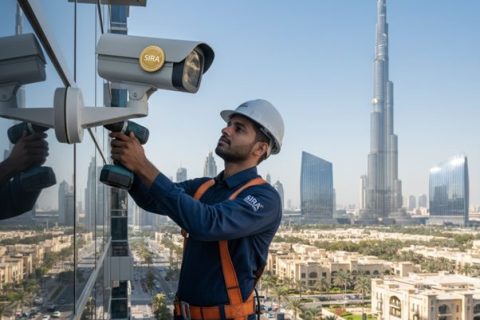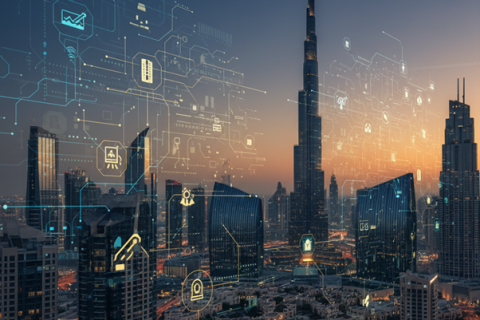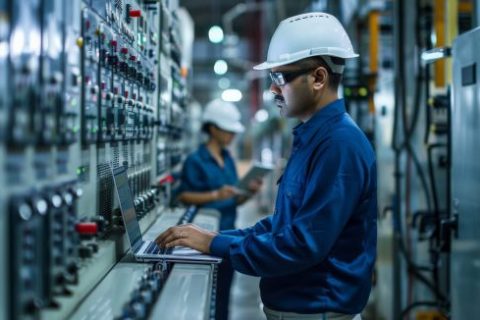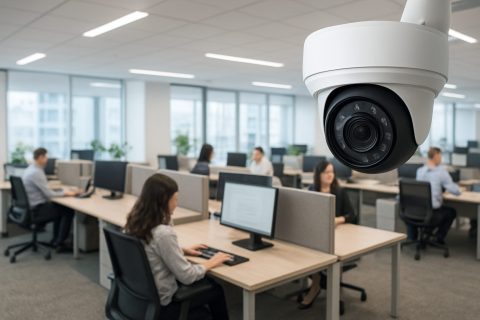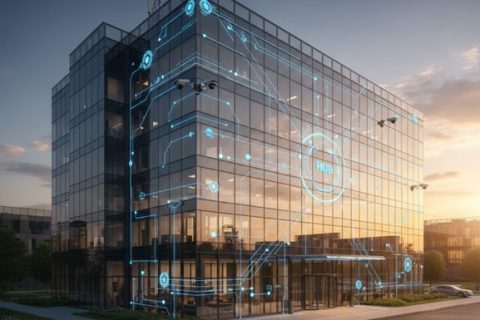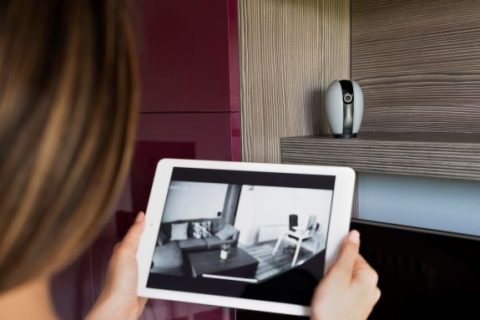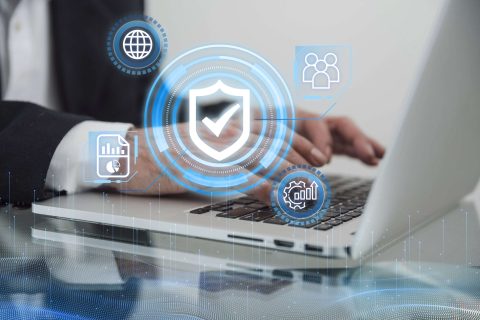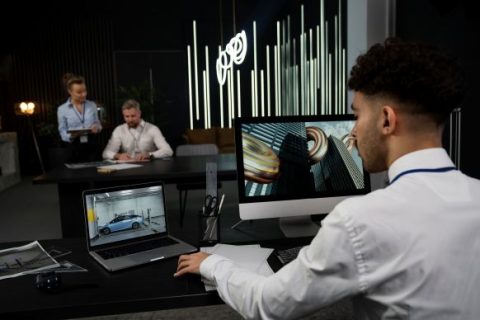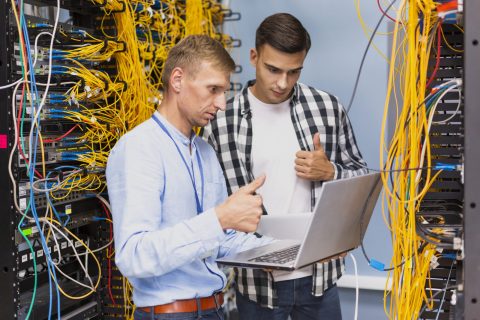Introduction
An ELV system in Dubai has become the backbone of modern infrastructure, transforming how buildings operate and connect. As the UAE continues to lead in smart city initiatives, Extra Low Voltage systems are no longer optional, they’re essential for creating intelligent, efficient, and secure environments. Whether you’re developing a commercial complex, residential tower, or industrial facility, understanding ELV technology is crucial for staying competitive in Dubai’s rapidly evolving landscape.
This guide explores everything you need to know about implementing smart ELV systems, from core components to industry applications, helping you make informed decisions for your next project.
Key Takeaways
- ELV systems operate at voltages below 50V AC or 120V DC, providing safe and efficient infrastructure for modern buildings in Dubai
- Integrated ELV and security systems enhance building intelligence while reducing operational costs by up to 30%
- Proper ELV system for buildings includes fire alarms, CCTV, access control, building management systems, and structured cabling
- Dubai’s strict regulations and green building standards make professional ELV implementation essential for compliance and certification
What is an ELV System and Why Dubai Needs It
An Extra Low Voltage (ELV) system refers to electrical installations that operate at significantly reduced voltage levels, typically below 50 volts AC or 120 volts DC. This makes them inherently safer while powering critical building infrastructure.
Dubai’s ambitious Vision 2040 and Smart Dubai initiatives have accelerated the demand for sophisticated building technologies. An ELV system in Dubai serves as the nervous system of smart buildings, integrating multiple subsystems into a cohesive network. From the Burj Khalifa to upcoming sustainable developments, these systems enable:
- Real-time monitoring and control of building operations through centralized platforms
- Enhanced safety protocols with integrated fire detection and emergency response systems
- Energy optimization reducing consumption by 25-40% through intelligent automation
- Future-ready infrastructure that adapts to evolving technology standards
According to recent market analysis, Dubai’s ELV systems market is projected to grow at 8.2% annually through 2028, driven by mega-projects and smart city mandates.
Core Components of ELV Systems for Buildings
Building Management Systems (BMS)
A Building Management System serves as the central intelligence hub, orchestrating all building operations from a single interface. Modern BMS platforms provide predictive maintenance alerts, energy consumption analytics, and automated climate control.
The ELV system for buildings relies heavily on BMS integration to achieve operational efficiency. These systems monitor HVAC performance, lighting schedules, and occupancy patterns, automatically adjusting conditions to optimize comfort and reduce waste. Leading Dubai properties report energy savings of 30-35% after implementing advanced BMS solutions with machine learning capabilities.
Fire Alarm and Life Safety Systems
Fire detection and alarm systems represent the most critical ELV component, mandated by UAE Civil Defense regulations. These systems include:
- Intelligent smoke and heat detectors with addressable technology for precise location identification
- Voice evacuation systems providing clear emergency instructions in multiple languages
- Integration with building controls automatically shutting down HVAC and activating smoke extraction
- Emergency lighting and exit signage ensuring safe evacuation routes remain visible
Dubai’s stringent safety codes require regular testing and certification, making professional installation and maintenance non-negotiable for compliance.
Security and Access Control Integration
Modern security infrastructure goes far beyond traditional locks and keys. ELV and security systems work in tandem to create comprehensive protection layers that are both sophisticated and user-friendly. Understanding the benefits of ELV and security system integration is crucial for maximizing your building’s safety and operational efficiency.
Access control systems use biometric readers, RFID cards, and mobile credentials to manage entry points across facilities. When integrated with CCTV networks and intrusion detection, these systems provide real-time threat assessment and automated response protocols. Dubai International Airport and Dubai Mall showcase world-class implementations where thousands of access points operate seamlessly, processing millions of authentication requests daily while maintaining robust security.
Structured Cabling and Network Infrastructure
The foundation of any ELV system is its cabling infrastructure, a structured network that carries data, voice, and video signals throughout the building. Cat 6A and fiber optic installations ensure high-speed connectivity supporting current needs while accommodating future bandwidth requirements.
Professional structured cabling eliminates the chaos of ad-hoc installations, reducing downtime and simplifying troubleshooting. With Dubai’s push toward 5G integration and IoT proliferation, robust cabling infrastructure becomes even more critical. Buildings designed with scalable network architecture can adapt to emerging technologies without costly retrofits.
Industry Applications Across Dubai’s Sectors
Commercial Real Estate and Office Complexes
Dubai’s commercial sector demands ELV systems that support hybrid work environments and enhance tenant experiences. Modern office buildings integrate desk booking systems, smart meeting rooms, and environmental sensors into unified platforms.
Properties equipped with advanced ELV system for buildings attract premium tenants and command higher rental rates. Features like touchless entry, air quality monitoring, and personalized climate zones have become standard expectations rather than luxury amenities. Learn more about how ELV systems transform buildings into smart spaces that meet modern demands.
Hospitality and Luxury Developments
Hotels and resorts leverage ELV technology to deliver personalized guest experiences while optimizing operational efficiency. From mobile check-in systems to in-room automation that remembers guest preferences, these implementations differentiate properties in Dubai’s competitive hospitality market.
Leading properties integrate:
- Guest room management systems controlling lighting, temperature, and entertainment through tablet interfaces
- Energy management automatically adjusting settings when rooms are vacant
- Digital signage networks displaying dynamic content in lobbies, restaurants, and event spaces
- Integrated security ensuring guest safety without compromising privacy
Industrial and Manufacturing Facilities
Manufacturing facilities in Dubai Industrial City and Jebel Ali benefit from ELV systems that enhance safety, efficiency, and compliance. These installations monitor equipment performance, track inventory movement, and ensure worker safety through automated hazard detection.
Process automation integrated with ELV and security systems enables predictive maintenance, reducing unplanned downtime by up to 40%. Real-time data analytics help managers optimize production schedules and resource allocation, directly impacting profitability.
Choosing the Right ELV Partner in Dubai
Experience and Local Expertise
Selecting an ELV provider requires evaluating their track record with similar projects in the UAE market. Look for companies with:
- Over 10 years of regional experience navigating Dubai’s regulatory landscape
- Certified technicians trained on international standards and local codes
- Portfolio of completed projects demonstrating capability across various building types
- Ongoing support and maintenance ensuring system longevity and performance
The complexity of modern ELV systems in Dubai demands partners who understand both global best practices and local requirements, from Civil Defense approvals to green building certifications. Discover key factors to consider when choosing the best ELV system for your specific needs.
Integration Capabilities and Future-Proofing
Technology evolves rapidly, and your ELV infrastructure should accommodate future innovations without complete replacement. Evaluate potential partners on their ability to:
- Design scalable systems that grow with your needs
- Integrate diverse manufacturers and protocols into cohesive solutions
- Provide IoT-ready platforms supporting smart sensors and devices
- Offer cloud-based management enabling remote monitoring and control
Buildings equipped with flexible, standards-based ELV architectures maintain their competitive edge longer and avoid obsolescence.
Conclusion
Implementing a comprehensive ELV system in Dubai is essential for creating buildings that meet modern expectations for safety, efficiency, and intelligence. From integrated ELV and security systems to sophisticated building management platforms, these technologies deliver measurable returns through reduced operational costs, enhanced occupant experiences, and future-ready infrastructure.
As Dubai continues advancing its smart city vision, properties without robust ELV foundations will struggle to compete. Whether you’re planning a new development or upgrading existing facilities, partnering with experienced professionals ensures your investment delivers lasting value.
Ready to transform your building with cutting-edge ELV solutions? Contact Vega Digital IT Solutions to discover how our proven expertise can optimize your infrastructure for the digital age.
Frequently Asked Questions
What is an ELV system in Dubai?
An ELV system in Dubai is an Extra Low Voltage electrical installation operating below 50V AC, powering smart building technologies like fire alarms, CCTV, access control, and building management systems for enhanced safety and efficiency.
How much does an ELV system for buildings cost in Dubai?
ELV system for buildings costs vary based on project size and complexity, typically ranging from AED 50-150 per square foot. Factors include building type, integration requirements, and technology specifications for optimal performance and compliance.
What are the main components of ELV and security systems?
ELV and security systems include CCTV surveillance, access control, intrusion detection, fire alarms, building management systems, structured cabling, and public address systems, all integrated to provide comprehensive protection and operational efficiency.
Why integrate ELV systems in commercial buildings?
Integrating ELV systems reduces operational costs by 30%, enhances security, improves energy efficiency, ensures regulatory compliance, and increases property value. Learn more about ELV systems for smarter operations.
Are ELV systems mandatory in Dubai buildings?
Yes, Dubai Civil Defense and Dubai Municipality mandate ELV systems including fire alarms, emergency lighting, and security infrastructure for all commercial and residential buildings to ensure safety compliance and obtain occupancy certificates.
How long does ELV system installation take?
ELV system installation typically takes 3-6 months depending on building size, system complexity, and integration requirements. Proper planning, coordination with contractors, and phased implementation ensure timely completion without disrupting construction schedules.
What is the difference between ELV and LV systems?
ELV systems operate below 50V AC for safety-critical applications like security and communications, while LV (Low Voltage) systems run at 50-1000V AC powering lighting, HVAC, and equipment requiring higher voltage for operation.
Can existing buildings upgrade to smart ELV systems?
Yes, existing buildings can retrofit smart ELV systems through phased upgrades. Modern solutions integrate with legacy infrastructure, allowing gradual implementation without major disruptions. Explore IoT integration options for enhanced connectivity.
What maintenance do ELV systems require?
ELV systems require quarterly inspections, annual certifications, firmware updates, battery replacements, and preventive maintenance. Professional IT AMC providers ensure system reliability, regulatory compliance, and optimal performance throughout the system lifecycle.
How do ELV systems improve building energy efficiency?
ELV systems optimize energy consumption through automated lighting controls, HVAC scheduling, occupancy sensors, and real-time monitoring. Building management systems analyze usage patterns, reducing energy waste by 25-40% while maintaining optimal comfort levels.

